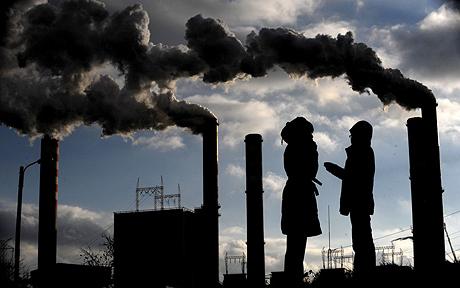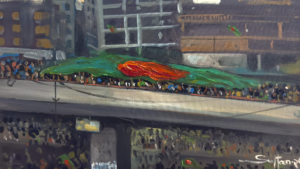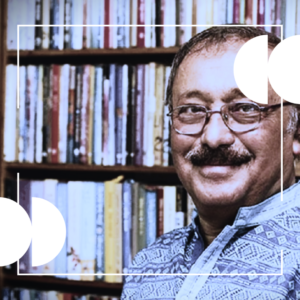
EVERY year the national budget appears as a source of apprehension and anxiety for people at large; there is always the concern that the budget will again trigger another surge in market prices, along with the increase in tax burden. The budget for 2014-15, which was passed in Jatiya Sangsad on Tuesday, has not been any exception. There have always been complaints about the government’s general inefficiency; however, data shows that it has developed enough skill to increase revenue income, especially by expanding the coverage of value-added and other taxes. Yet, while limited- and low-income people pay increased taxes, hardly any attempt is made to bring the wealthiest individuals under the tax net. Thus, the question remains: Who pays and who gains? People are paying increased taxes in many forms but what are they getting in return? Better security? Better access to public education, healthcare, public transport? Clean water, playing field, open spaces? No.
Abul Maal Abdul Muhith has been the finance minister since 2009. His ministry has an adviser, too: Dr Mashiur Rahman. Mr Muhith has had to cover up many facts with rhetoric this year, as usual. He also talked tall about the power and energy sector, which involves a lion’s share of government expenditure, loans and subsidies. The key person in the sector is the energy adviser to the prime minister, Dr Tawfiq-e-Elahi Chowdhury. All these influential policymakers happen to be former bureaucrats. Mr Muhith is a former bureaucrat, too. A member of the administration cadre, he served many governments. He started his post-bureaucrat ministerial career during the military regime of General Ershad in early 1980s.
The model that made the roadmap
IN THE 1980s the neo-liberal model of capitalism started rolling in many peripheral countries, including Bangladesh, in the form of implementing structural adjustment programmes prescribed by the World Bank and the International Monetary Fund. This model got momentum after its ‘successful implementation’ in Chile, with thousands killed and many more disappeared under the killer regime of Augusto Pinochet.
Milton Friedman, the guru of neo-liberal (conservative) economics from Chicago University, served as special adviser to Pinochet. Naomi Klein in Shock Doctrine shows the nature of implementation of this model in different parts of the world that created ‘disaster capitalism’. Based on research in different regions for four years she revealed how war, genocide, occupation, militarisation and privatisation go hand in hand, to give the corporate world a big success.
The neo-liberal model, i.e. an orthodox version of ‘free market’ capitalism, has actually been a theoretical tool to rationalise aggressive mode of capital accumulation in the phase of ‘late capitalism’, as coined by Ernest Mandel. This model asks for privatising and corporatising everything under (and including) the sun: education, health care, water, river, forest…making everything for market, bringing everything under corporate greed. Public services, state responsibility for providing health care, education, child and mother care, pure drinking water, public transport, security are not recognised as people’s right in this model. People must have money to buy everything they need, as citizens they cannot expect any right!
Therefore though we have had many changes in governments in Bangladesh in the past few decades, this model keeps running with increasing strength. Beneficiaries of this model include multinationals, big business, bureaucrats, consultants, contractors, ministers, lawmakers, local grabbers.
Money and muscle
LITTLE wonder that grabbing of public resources and common properties have become dominant economic activity in the country and substantial wealth in the form of ‘black’ money has been generated in the economy. These huge resources accumulated in a few hands, those who are obviously powerful, well connected to or part of the government, and have blessings from global agencies as well. Illicit money flowing out of countries like Bangladesh is actually a good thing for the global financial industry. A partial figure has recently been exposed by the ‘Banks in Switzerland 2013’ that says Bangladeshis have $414 million there, a 60 per cent increase on the previous year (Prothom Alo, June 20). A Washington-based think tank reported that illicit financial flow from Bangladesh has reached an average $1.2 billion a year (Dev Kar and Brian Le Blanc, 2013).
Sources of this big underground or ‘black’ economy include bribing, commissions from different bad deals, over- and under-invoicing, grabbing of public resources, fraud transfer, sex trade, women and child trafficking, drug business, smuggling, tax evasion, illegal transfer from MLM-Destiny-share market money, usurpation of public money. Well-connected persons start with grabbing wealth beyond legal means and end up with multiplying that asset. They dictate politics, law, government agencies. Recent incidents have exposed that they can hire the police or the Rapid Action Battalion to kill people too.
The mere size of this accumulated underground money is self-explanatory; the logical consequence is its further expansion through similar activities and investment. These produce and reproduce violence, crime, hooliganism and extreme insecurity in society and destruction of the environment.
Government legalising grabbing
THE economic adviser to the prime minister, Dr Mashiur Rahman, was chosen to lead a government initiative to identify ‘unutilised land of the state-owned entities’. Dr Mashiur Rahman, along with another adviser to the prime minister, Dr Gowher Rizvi, has also defended the widely reviled Tipaimukh dam project and transit for India. He is also a strong advocate for the coal-fired power plant with India, which, experts and environmentalists fear, would destroy Sundarban, and the nuclear power plant with Russia, which has been agreed upon with any serious environment impact analysis. He took the responsibility of the chair of a high-powered committee to identify ‘extra’ public land, apparently to deliver it to some chosen private hands in the name of ‘development’. We have bitter experience with privatisation of state-owned entities; in many cases, private owners closed down state-owned mills, and turned the land into shopping mall or real estates. The latest plan of the government appears to be nothing but a ploy to create opportunities for the same encroachers to grab public lands.
Within three days of the declaration of the budget for 2014-15, the inter-ministerial committee reviewed the detailed area plan of the Dhaka city and decided to allow construction of buildings on water bodies and open spaces by changing the area plan. As it is reported, the committee is ready to approve 19 housing plots and projects that include projects of Bashundhara Housing at Badda, Cantonment and Gulshan, Hamid Real Estate and others. Approval for the 19 projects will call for a change in the land use plan mostly from ‘flood flow zone’, ‘water body’ and ‘water retention area’ to ‘urban residential zone’ or ‘institutional zone’ (New Age, June 9).
Guarding the black holes
WE HAVE another adviser Dr Tawfiq-e-Elahi Chowdhury, who was energy secretary for many years, played a crucial role in facilitating entry of multinationals in energy sector, protecting their interest including non-payment of compensation for blowout in Magurchara and Tengratila. He has been one of the key players behind the privatisation of power and energy sector in favour of multinational capital and few local groups and turning gas and electricity into costly commodity, and increasing subsidy for the corporate interest. Consequences include consistent price rise for people and its devastating effects on the productive sectors of the economy.
After making the power sector a lucrative field for a few and a constant pain for the many, the government now tells us of its efforts and commitments towards ‘prioritising’ the sector. It is true that a huge amount of public money has already been spent on this sector. The government borrowed money at an unprecedented rate for the sector. Meanwhile, the allocation for the sector has also been increased, as has subsidy. But where has the money gone?
The simple answer is: into black holes. What are these black holes? Rental and quick-rental power plants, multinationals, vested interest groups, lobbyists, and commission agents. Wrong policy and corruption are draining out a major portion of the public money.
Strengthening the mineral resources division, building the national capacity for increasing power generation, efficient mix of renewable and non-renewable energy resources, expanding exploration and extraction activities by the national organisations are the minimum requirements to ensure energy security. But the policy has been the opposite. Therefore, no money was available for doing the most important things. The model asks for borrowing and spending more money to create more burdens.
In the apparent anarchy, inefficiency, indecision or sometimes abrupt decisions, careful scrutiny may find a well-organised roadmap for the sector. The roadmap is to turn the power and energy sector into an open space for big business — local and global — at the cost of the people, the environment and the national economy. Erosion of national authority over its own resources and continuous price rise of gas, electricity and oil has really been a success of the roadmap. All these three ex-bureaucrats deserve credit for the success!
I conclude by citing a letter from Davison Budhoo, a senior economist with the International Monetary Fund for more than 12 years. He received his degree from the London School of Economics and joined the staff of the World Bank in 1966 and later shifted to the IMF, where he was responsible for designing and implementing structural adjustment programmes for different countries, the same we have been experiencing for few decades. In his 100-plus pages open letter to Michel Camdessus, managing director of the IMF, titled ‘Enough is Enough’, he wrote, ‘Today I resigned from the staff of the International Monetary Fund after over 12 years, and after 1,000 days of official Fund work in the field, hawking your medicine and your bag of tricks to governments and peoples in Latin America and the Caribbean and Africa. To me resignation is a priceless liberation, for with it I have taken the first big step to that place where I may hope to wash my hands of what in my mind’s eye is the blood of millions of poor and starving people’ (http://www.thirdworldtraveler.com/IMF_WB/Budhoo_IMF.html)
We know very well that other blood-soaked hands still remain active!
Previously Published in the Daily New Age, July 2, 2014





